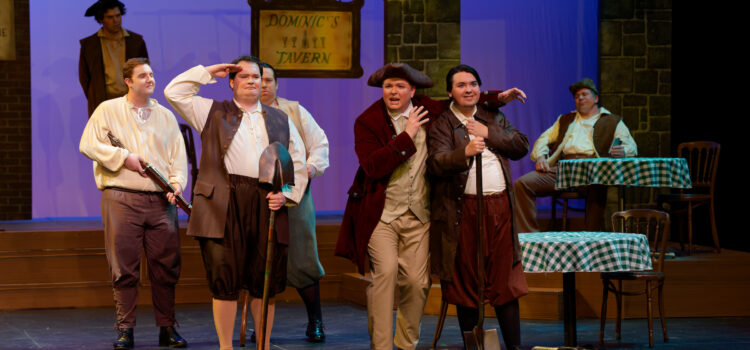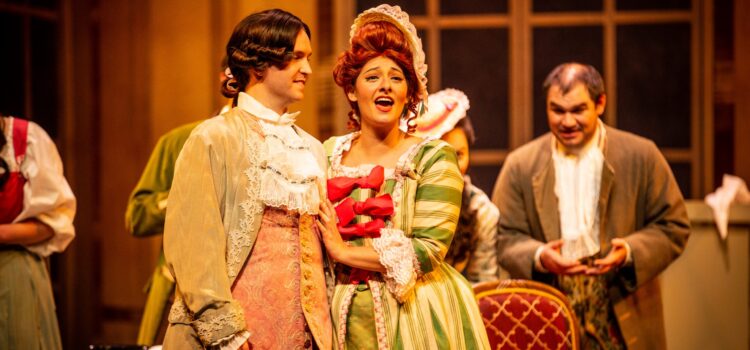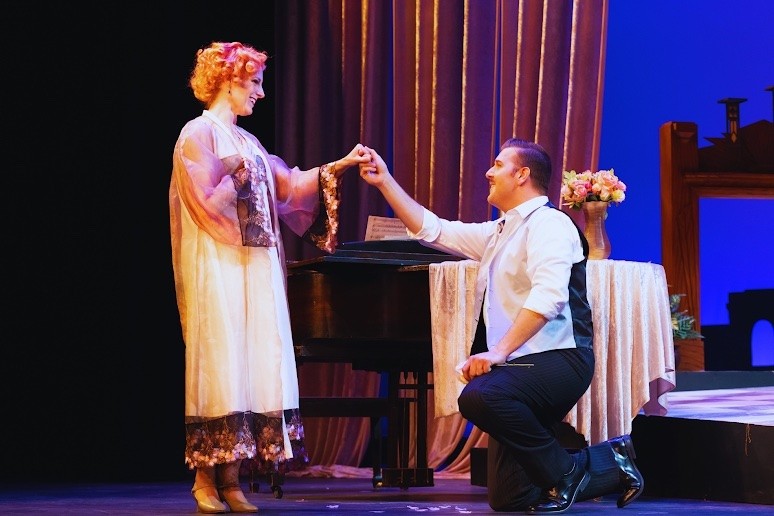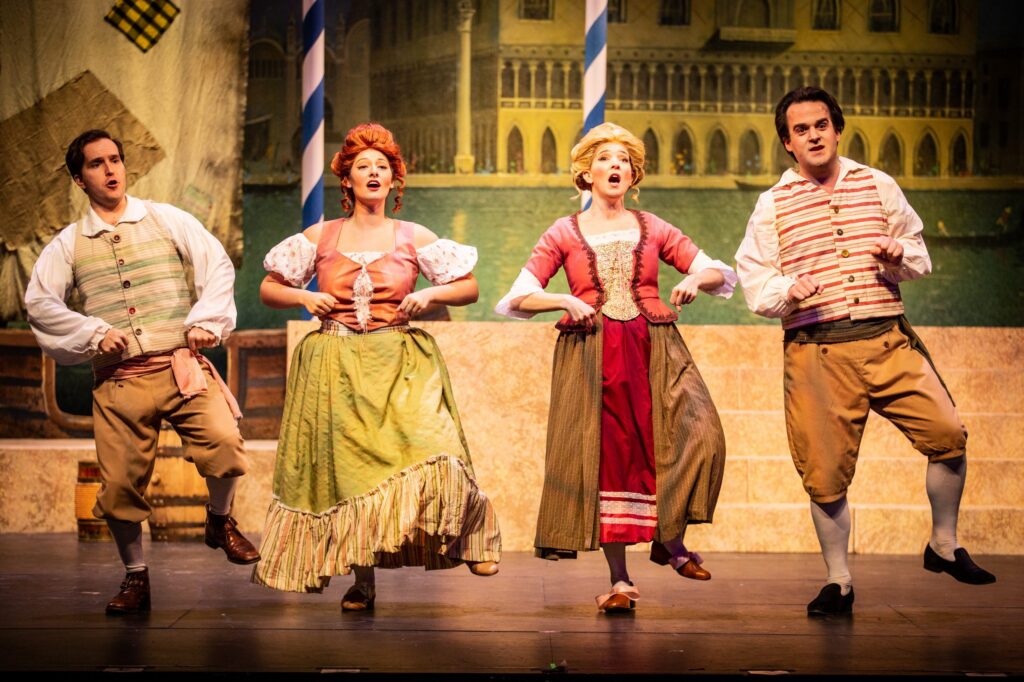David Taylor Little’s New Book Shines in Winter Opera’s 17th Season Finale
By C.B. Adams
What passed for a naughty narrative in 1910 would hardly raise an eyebrow (or much interest) in 2024, so it’s a good thing that David Taylor Little wrote a new book for Victor Herbert’s once-popular “Naughty Marietta.” Winter Opera staged this now-charming operetta on March 1 and 3, ending its 17th season with a delightful blend of wit, whimsy and musical allure.
In a lighthearted operetta like “Naughty Marietta,” the best parts are the songs. With Little’s retooling of the story and under the direction of John Stephens, the songs, including “Ah! Sweet Mystery of Life,” “Neath a Southern Moon,” “Tramp! Tramp! Tramp! (Along the Highway) “and “Falling in Love with Someone” really had the chance to shine.
All the songs benefited from the lively performance by the orchestra, conducted by Mark Ferrell. Choreographer Rachel Bodl added to the experience with lively dance numbers that enhanced the production’s charm.
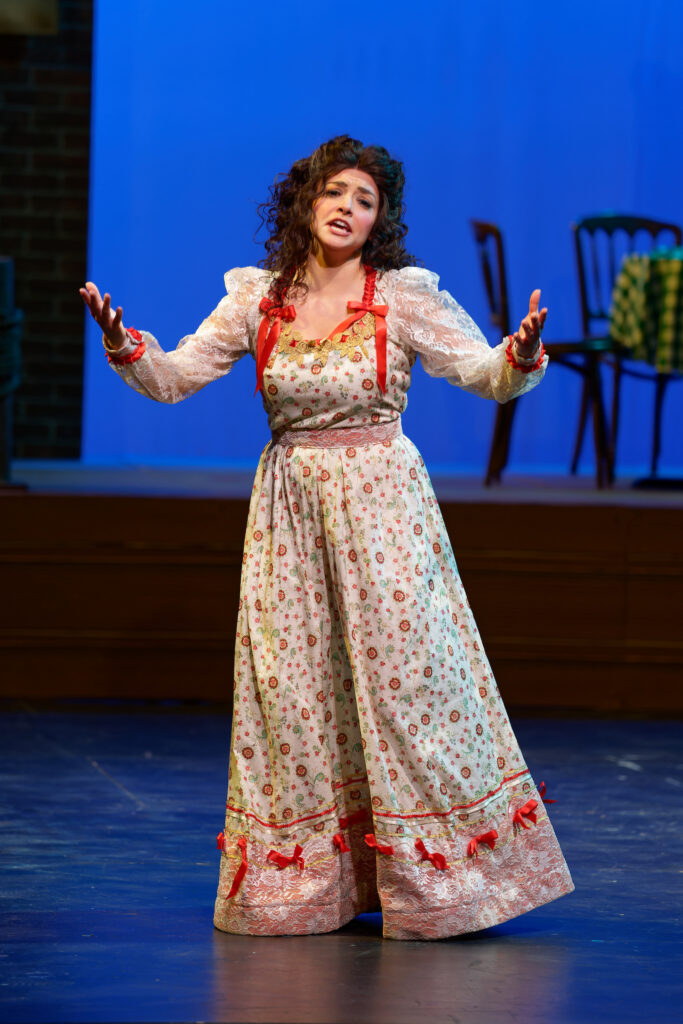
Any fans of “Young Frankenstein” and “Thoroughly Modern Millie” probably recognized “Ah! Sweet Mystery of Life,” which was repurposed in those films.
For “Naughty Marietta,” Winter Opera assembled a remarkable cast, including soprano Brittany Hebel who sparkled in the title role of Marietta, a spirited Italian Contessa who finds herself embroiled in a love triangle and a rebellion.
Hebel’s voice was rich and expressive, perfectly capturing the emotional depth of her character. Her performance of the “Italian Street Song” was a highlight and showcased her vocal agility and dramatic flair.
Opposite Hebel was tenor Zachary Devin as Captain Warrington, the gallant hero who captures Marietta’s heart. Devin’s warm tenor and affable charm made him a perfect match for Hebel, and their duets were a joy to experience.
Michael Colman brought a menacing presence to the role of Etienne, the villainous son of the Governor. Colman’s rich bass-baritone was well-suited to the role. His “You Marry a Marionette” was a highlight of his performance and of the entire show.
Mezzo-soprano Melanie Ashkar delivered another standout performance as Adah, a woman wronged by Etienne. Her rendition of “Under the Southern Moon” was hauntingly beautiful and showcased her rich, sultry voice. The supporting cast was equally strong, including Schapman as the bumbling Simon, Gary Moss as the comic puppeteer, Rudolfo, and Grace Yukiko Fisher as the lovelorn Lizette.
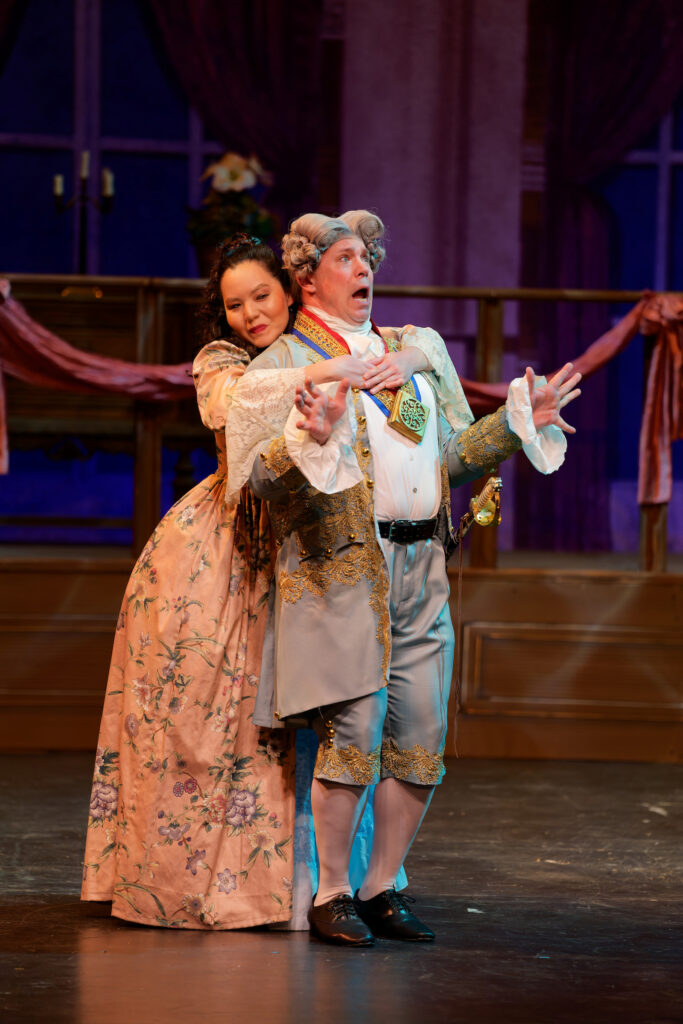
Under scene design by Scott Loebl, “Naughty Mariette” was perfectly scaled for the stage at the Kirkwood Performing Arts Center. In their heyday, operettas were known for their elaborate costumes and sets, and Winter Opera’s creative team further that tradition.
Loebl’s set design was beautiful and practical, including the standout Act II scene at Rudolfo’s puppet shop. Jen Blum-Tatara’s costumes were appropriately colorful and evocative of 18th-century New Orleans.
Winter Opera’s production of “Naughty Marietta” was a delightful romp that showcased the best of the operetta form in general and the best of this reborn operetta. With a talented cast, beautiful production design and unforgettable music, Winter Opera has set a high bar for itself in the coming years.
Winter Opera’s “Naughty Marietta” was performed at Kirkwood Performing Arts Center March 1 and 3.
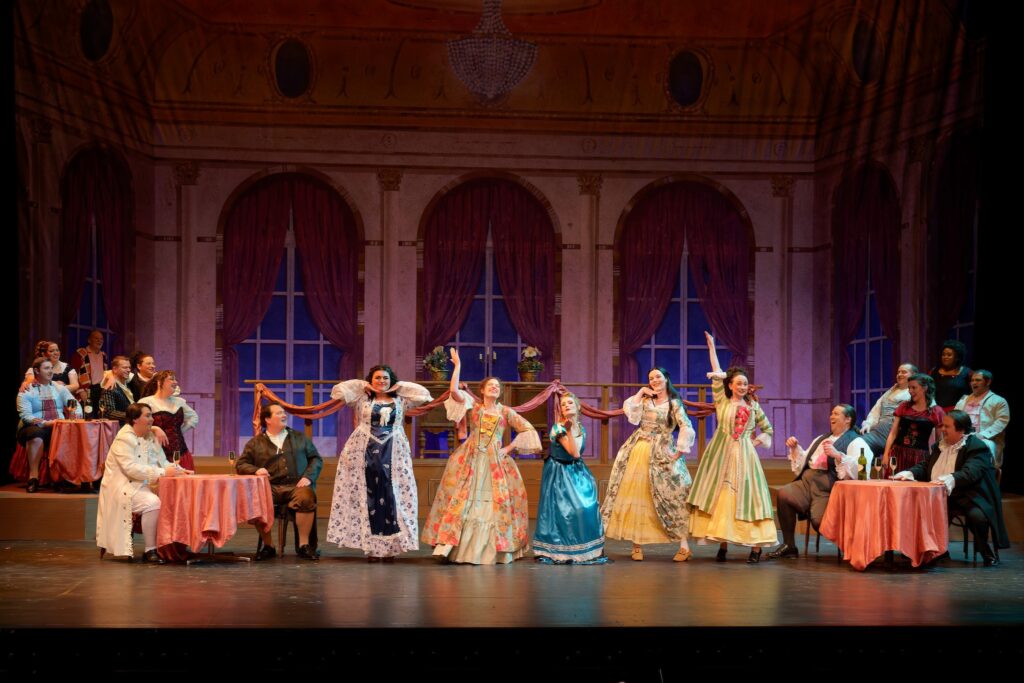

CB Adams is an award-winning fiction writer and photographer based in the Greater St. Louis area. A former music/arts editor and feature writer for the St. Louis Globe-Democrat, his non-fiction has been published in local, regional and national publications. His literary short stories have been published in more than a dozen literary journals and his fine art photography has been exhibited in more than 40 galley shows nationwide. Adams is the recipient of the Missouri Arts Council’s highest writing awards: the Writers’ Biennial and Missouri Writing!. The Riverfront Times named him, “St. Louis’ Most Under-Appreciated Writer” in 1996.

